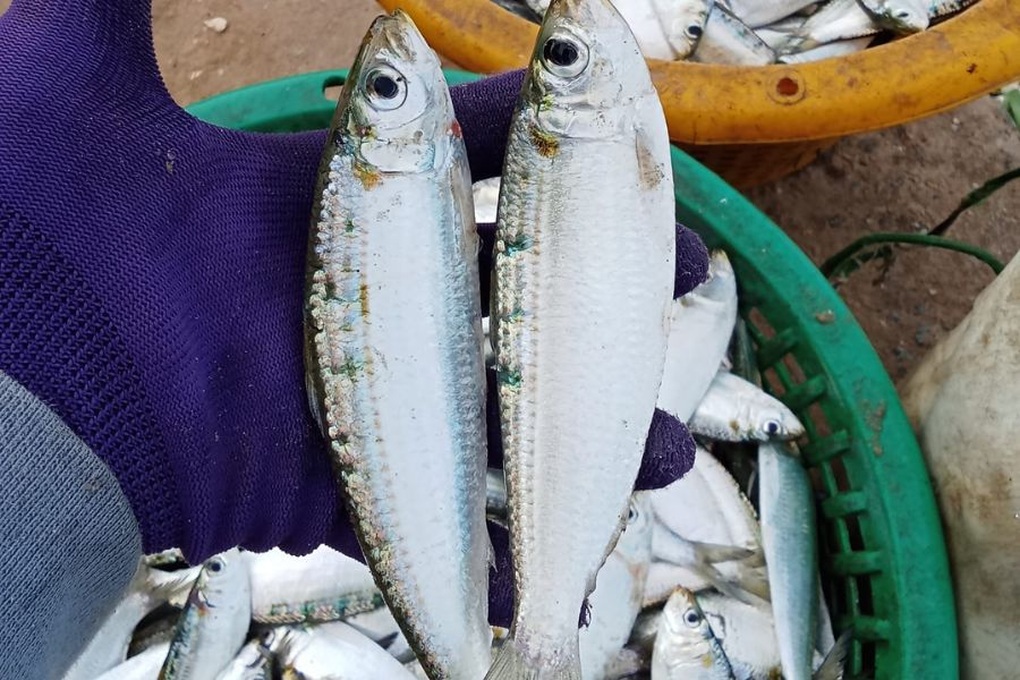Nutritious fish that Japanese people love
Japan, with its island nation geography, has long considered fish and seafood an indispensable part of its daily diet.
In addition to famous names such as salmon, mackerel, tuna, Japanese people also love herring - a type of fish present in many traditional dishes such as herring sushi, Nishin Soba noodles (noodles with herring), salted herring or fermented herring.
In particular, herring is highly appreciated for its rich flavor, ease of preparation and rich nutritional content, especially omega-3 fatty acids, a golden factor for cardiovascular health.

Herring is very nutritious (Photo: Getty).
Not only appearing in Japanese culinary culture, herring is also very familiar to Vietnamese people.
In many coastal provinces such as Ha Tinh and Quang Nam, herring is considered a "heavenly gift" thanks to its abundant output each season.
Reasonable price and abundant supply make herring easily appear in many delicious rustic dishes such as herring salad, grilled herring, braised herring, enriching the daily menu of Vietnamese people.
Why does "fatty" fish help reduce blood fat?
Although classified as a "fatty" fish due to its high fat content, herring is a very healthy food, especially for people with blood fat problems.
According to information from Healthline , high blood fat increases the risk of plaque formation in the arteries, leading to a series of serious health problems such as heart attack, stroke, and high blood pressure.
Additionally, this condition is also associated with peripheral artery disease, memory loss, and gallstone formation.
What makes herring special is its high content of omega-3 fatty acids. This is a type of polyunsaturated fat that has many benefits for heart health.
Studies have shown that omega-3 has the ability to reduce triglyceride levels, lower LDL (bad cholesterol) and increase HDL (good cholesterol), thereby helping to reduce the risk of cardiovascular disease and stroke.
Data from the US Department of Agriculture 's Food and Drug Administration shows that just 100 grams of raw herring provides about 1,729 mg of omega-3. An impressive number, equivalent to the amount of omega-3 in salmon, while the price of herring is much "softer".
The UK National Health Service (NHS) also recommends that adding omega-3-rich fish such as herring to your weekly diet is a simple and effective way to lower cholesterol levels and boost heart health.
How to eat herring for good health?
Not only choosing the right food, but also how you prepare it plays a decisive role in optimizing health benefits.
With “fatty” fish like herring, preparation method is key, according to the American Heart Association.
Grilling, steaming or boiling are recommended as they help retain the maximum amount of valuable omega-3 in fish. On the contrary, frying methods easily lose nutrients and even create trans fats.
In addition, combining herring with vegetables and natural spices such as onions, garlic, and ginger not only enhances the flavor but also contributes to enhancing the nutritional benefits of the meal.
Although rich in omega-3s and valuable nutrients, herring - especially salted or fermented herring products - can contain high levels of sodium. Therefore, people with a history of high blood pressure or cardiovascular disease should consider limiting their intake of salted herring and prioritize simple, fresh herring to control their salt intake.
Source: https://dantri.com.vn/suc-khoe/loai-ca-beo-giup-giam-mo-mau-nguoi-nhat-ua-chuong-viet-nam-rat-san-20250607215809544.htm

































































































Comment (0)